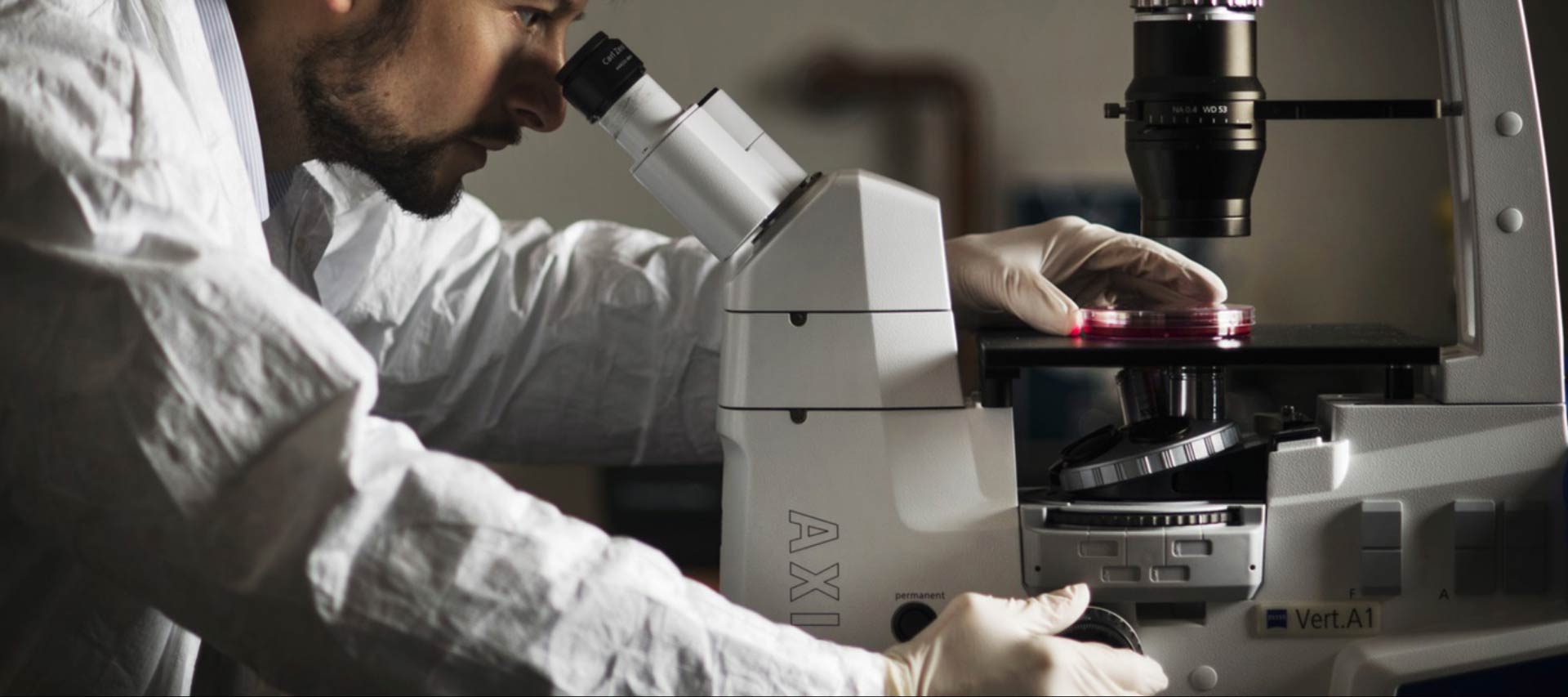
People
We are teachers, leaders, researchers, advisors, business professionals and students. Welcome to Northeastern’s College of Science
Katie Dioli
Kirsten Fertuck
News
New research from Northeastern University finds that regular marijuana use suppresses the effects of Adderall on the brains of mice
Adderall is prescribed for attention deficit disorders as a way to help focus.
Marijuana is legal in two dozen states and is used by many to relax.
New research from Northeastern University says you shouldn’t use the two in combination — finding that regular marijuana use suppresses the effects of Adderall on the brains of mice.
The research was conducted at the Center for Translational Neuroimagery at Northeastern, an MRI lab run by psychology professor Craig Ferris, and it was published in the journal Frontiers of Pharmacology.
Read more from Northeastern Global News
AP Photo/Jenny Kane
A celebration of undergraduate researchers
This fall, we celebrated the outstanding research opportunities offered to our undergraduate students, made possible through generous donors and initiatives like the new Dean’s Undergraduate Research Scholars program which aims to immerse students, as early as their first year, in the exciting discoveries being made in the College. Students (listed below) presented the important research they’ve been working on with their faculty mentors to families, friends, faculty, staff, and donors during a special showcase. We’re immensely proud of our exceptional undergraduate students!
 Tochi Chukwuemeka (she/her/hers), Behavioral Neuroscience and Design
Tochi Chukwuemeka (she/her/hers), Behavioral Neuroscience and Design
Dean’s Undergraduate Research Scholar
Presentation: A Little Bit About Me
Center: Center for Translational NeuroImaging
 Nicole Mongillo
Nicole Mongillo
Halverstadt Family Summer Internship Program for the Marine Science Center
Presentation: Exploring Patterns of Yield Variability across Spatial Scales in Costa Rican Coffee Crops
Lab: Garcia Lab
 Charlotte Roth
Charlotte Roth
2024 Jill Barrett Research Scholar
Presentation: The influence of size on C. elegans running response to alternating current
Lab: Young Lab
 Zachary Anderson
Zachary Anderson
2024 Jill Barrett Research Scholar
Presentation: Enhancing Coral Reef Health: Advanced Monitoring Approaches
Lab: Vollmer Lab
 Bita Adel-Zadeh
Bita Adel-Zadeh
Shapazian Research Co-op
Presentation: Characterization of Tau Species in Plasma
Lab: Lei Liu, MD, Ph.D: Laboratory of Neurology at Harvard Medical School/Brigham and Women’s Hospital
 Jasper Olson
Jasper Olson
Paul & Grace Ward Martinez (‘48) Research & Co-op Fund
Presentation: Navigating the Morally Distressing Storm: Adapting healthcare concepts to investigate climate change complexity and cognitive-emotional tensions
Lab: Sustainability and Social Change Lab
 Saad Mohsin
Saad Mohsin
Robert E. Matz Scholar
Presentation: Nerve Dependency of Limb Regeneration in Ambystoma Mexicanum
Lab: Monaghan Lab
 Migue Van Louis Darcera
Migue Van Louis Darcera
Andrew I. Schafer, M.D. Co-op Research Fund
Presentation: Investigating a novel association between pulcherrimin and teichuronic acid in Bacillus subtilis biofilms
Lab: Chai Lab
 Zachary Greenfield
Zachary Greenfield
Northeastern Summer Math Research Program Research Experience for Undergraduates
Presentation: An exploration of categorical structures
Program Lead: Prof. Toledano Laredo
Undergraduates shine at Psychology & the Other Conference in London
This past July 13-14, Aaron B. Daniels, associate teaching professor of psychology, took 22 undergraduate students to run and present papers at a Psychology & the Other Conference, held at Northeastern’s London campus. The students were part of Professor Daniels’s Psychological Humanities at Northeastern University (PH@NU) Workgroup and were generously supported by the College of Science Dean’s Fund.

The conference was a collaboration between Northeastern and Boston College’s Center for the Psychological Humanities and Ethics with the support of Duquesne University’s Clinical Psychology Department and the Department of Psychosocial and Psychoanalytic Studies at the University of Essex, Colchester.
Over 200 scholars and practitioners attended this cross-disciplinary gathering offering over 90 papers and sessions covering diverse perspectives. The conference had an unprecedented number of undergraduates attending—over 50! Students participated in every aspect, from finding speakers to present and helping run the various track to presenting their research and networking with new leaders in the field—an incredible learning experience all around!

Professor William Sharp, Psychology, brought his Dialogue of Civilizations class as well as presented a paper of his own and Professor Laura Dudley, in her role as Director of Northeastern’s Mindfulness Minor, brought a student to present research as well as presenting her own work.
Northeastern Boston students presented over 19 posters in a wine and cheese reception with the evening finishing with opera sung by NU London’s Emily Noon and accompanied by Professor Bianca Serwinski, the London Chair for the conference. Northeastern London students were gracious hosts and presented their work at the conference.

How can physics models help prevent deadly stampedes at mass gatherings?
The death of at least 56 people in a stampede at a soccer stadium in Nzérékoré, Guinea, is the latest example of how quickly mass gatherings can turn catastrophic.
From a funeral of a public figure to a Halloween celebration or a music festival, history — both recent and ancient — is filled with such tragedies.
While these events often seem unpredictable, physics models can help understand how stampedes form, says Max Bi, an associate professor of physics at Northeastern University.
“Physics provides valuable tools to model pedestrian dynamics and analyze crowd behavior, offering actionable strategies to improve public safety,” Bi says.
Read more from Northeastern Global News
AP Photo/Samy Ntumba Shambuyi




